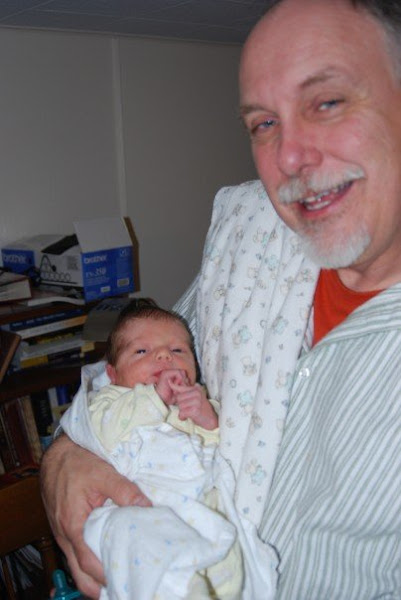My good friend reminded me that it's a violation of blogging etiquette to fail to make a posting at least once every few days. So I'm going to try to mind my manners.
One of the things I've been doing a lot more lately as a result of my research is just talking to people. Which can be a challenge. A couple of weeks ago I made appointments with three people to just meet and reconnect and two of them called to cancel a couple of hours ahead. So, perseverance is a necessary virtue in the new reality.
I went to see someone from my church yesterday -- a wonderful, engaging young mom of two beautiful children -- the kind of person you just love to have in your church -- but who works in the family business with her husband and is just very time stressed. I was making all my best pastoral noises, telling her that I really appreciated the kind of demands they were facing, but how much we missed them. "Is there anything we could be doing to make it easier for you to stay connected?"
She laughed. "Well, guilt works," she said. I laughed too. "No, but I totally understand what you're going through." (Pastoral response.) "Maybe you should be a little less understanding," she replied.
Hmmm. I know she was at least 50% kidding, but not entirely. I think she was saying, "You're making it too easy for us not to go." And I wonder if there's something there. THere's certainly a fine line. Guilt-tripping is generally a pretty ineffective strategy. But I wonder if we're partly to blame for just making the stakes so darn low. I wonder if I haven't been guilty of communicating the message, "It really isn't that big a deal if you come or not."
I love what Hauerwas said in his usual irascible fashion, "The purpose of worship is to be make us feel bad for the right reasons." And I wonder if we don't need to acquire the skill of being able to make people feel constructively bad when they say, "you know we meant to come to church, but I decided to do the laundry instead."
Diana Butler Bass is very de rigeur these days -- but it's a well deserved reputation. Her argument that intentional practices and conscious retraditioning are the best hope for mainline renewal has the ring of truth. Butler Bass contrasts "accidentalchurchgoing" and "intentional church going."
"Accidental churchgoing was the pattern of the mainline Protestant establishment ... marked by its chapel orientation: Church was the place to go where a minister performed certain spiritualtasks for the congregants.... Chapel religion typically blesses the social order, comforts people in times of crisis, and trains children in the customs of faith." It's a matter of personal preference and social conformity, not transformative faith.
"Intentional churchgoing," she argues, " differs from institutionalized [North] American religion in that it is a corporate journey ... Intentional congregations are marked by mobility, choice, reflexivity and reflection." [The rRacticing Congregation: Imagining a New Old Church, 78-80.]
I realize that I need to develop a lost set of evangelistic skills, adapted to present day social realities, if I'm to minister effectively to many affiliates. I can be present to them and ease any feelings of guilt they might harbor at putting sports and shopping ahead of God, but that's not the same as bringing their situation into interesection with the demands and blessings of the Gospel. And I realize how counter to my introverted, need-to-be-nice temperament this runs. My personal struggles, though, I think are a microcosm of mainline Christianity which has not dealt well with the loss of its christendom status.
Anybody out there got anything to say that might help me?
Sunday, October 21, 2007
Subscribe to:
Post Comments (Atom)


2 comments:
Well, if I only knew . . . .
Have we become so capitalistic that Thoreau's essays are so alien to us? Are we so unable to provide for ourselves that we must work all of the time, instead of just some of the time? If there is no bribe for the wise to do pointless labour, then why are we doing laundry instead of fulfilling ourselves? The church that can positively help a person to live a self-directed life will be admired by the people who come to worship. Independence is easy to achieve; being independent by constantly doing unfulfilling labour (shop, launder) is easy. Being independent and taking time to do what matters is difficult and everyone needs guidance and friends to keep that sort of activity up.
Of course, that assumes people want to stop frittering themselves away with work.
Post a Comment